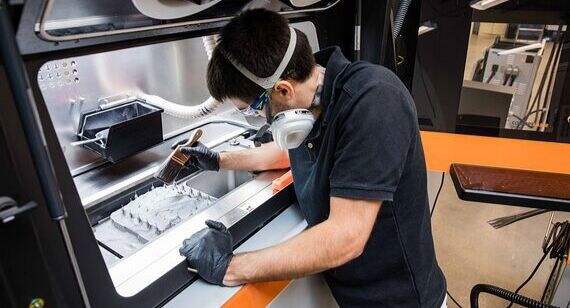The timing cover seal is a critical barrier preventing oil leaks in your engine’s front end. However, uneven sealant application or misaligned gaskets during installation can lead to oil seepage, contamination of engine components, and even timing belt damage due to lubricant loss. Traditional methods rely on manual alignment, which often results in inconsistent pressure distribution or skewed positioning. HTL’s laser-aligned jigs revolutionize this process by ensuring micron-level accuracy, eliminating guesswork, and preventing costly rework.
Sealant Application Errors: Uneven bead thickness creates gaps that oil exploits.
Misaligned Bolt Holes: Off-center covers warp the seal, causing localized compression failure.
Surface Imperfections: Scratches or debris on the sealing surface disrupt the gasket’s contact.
Thermal Cycling: Repeated expansion/contraction weakens poorly seated seals over time.
Symptoms of a Faulty Seal:
Oil pooling beneath the timing cover.
Reduced oil levels without visible external leaks.
Timing belt slippage or squealing noises.
HTL’s jigs integrate laser-guided alignment and pressure-sensitive feedback to address installation flaws:
Laser Projection System: Projects a real-time grid onto the timing cover and engine block, highlighting bolt hole alignment and sealant spread.
Smart Clamping: Adjusts pressure dynamically to ensure uniform gasket compression (10–15 Nm range).
Surface Scanning: Detects imperfections ≥0.1 mm using infrared sensors, prompting surface prep if needed.

1. Surface Preparation
Clean the timing cover and engine block with a solvent to remove oil and debris.
Use HTL’s infrared scanner to identify surface irregularities (e.g., burrs or pitting).
2. Apply Sealant with Precision
Load a pre-measured sealant cartridge into the jig’s dispensing system.
The laser grid guides a uniform bead (2–3 mm width) along the sealing channel, avoiding overflow or gaps.
3. Align and Secure the Cover
Position the timing cover using the laser projection for perfect bolt hole alignment.
Activate the jig’s smart clamps, which apply incremental pressure while monitoring compression via strain gauges.
4. Torque Bolts Accurately
Follow the laser grid’s sequence (typically crisscross pattern) to tighten bolts.
The jig’s integrated torque wrench ensures each bolt meets OEM specs (e.g., 12–15 Nm for most engines).
5. Post-Installation Verification
Use UV dye and a blacklight to check for micro-leaks.
Re-scan the surface to confirm sealant uniformity.
| Factor | Manual Installation | HTL Laser Jigs |
|---|---|---|
| Alignment Accuracy | ±1.5 mm (visual estimation) | ±0.05 mm (laser-guided) |
| Sealant Consistency | Variable bead thickness | 0.1 mm tolerance |
| Installation Time | 60–90 minutes (error-prone) | 20–30 minutes (automated guidance) |
| Leak Recurrence Rate | 15–20% (within 6 months) | <2% (industry data) |
Eliminate Costly Comebacks: Reduce warranty claims from seal failures.
Boost Efficiency: Train technicians faster with intuitive laser guidance.
Adaptability: Compatible with aluminum, cast iron, and composite covers.
Sustainability: Minimize sealant waste through precise dispensing.
A European auto workshop reported a 30% leak recurrence rate on timing covers for diesel engines. After adopting HTL’s jigs:
Leak recurrence dropped to 1.5% within 6 months.
Labor time per repair decreased by 55%, saving €12,000 annually.
Customer satisfaction scores rose 40% due to reliability improvements.
Timing cover leaks are no longer an inevitable headache. With HTL’s laser-aligned jigs, shops can achieve OEM-level sealing integrity, reduce waste, and build trust through flawless repairs.
Q: Can laser jigs retrofit older engine models?
A: Yes—HTL offers customizable adapter plates for legacy engines.
Q: How often should jigs be calibrated?
A: Annually, or after 500 installations (whichever comes first).
Q: Does sealant type affect performance?
A: HTL’s system works with RTV silicones, anaerobic sealants, and OE-specific formulations.
By integrating laser precision into your workflow, you’ll transform timing cover repairs from a chore into a competitive advantage. 🚗🔧✨
